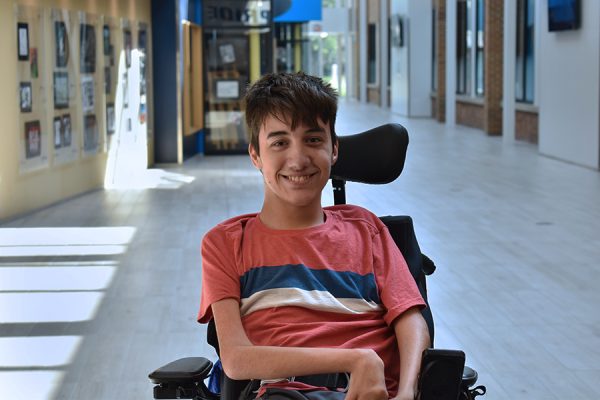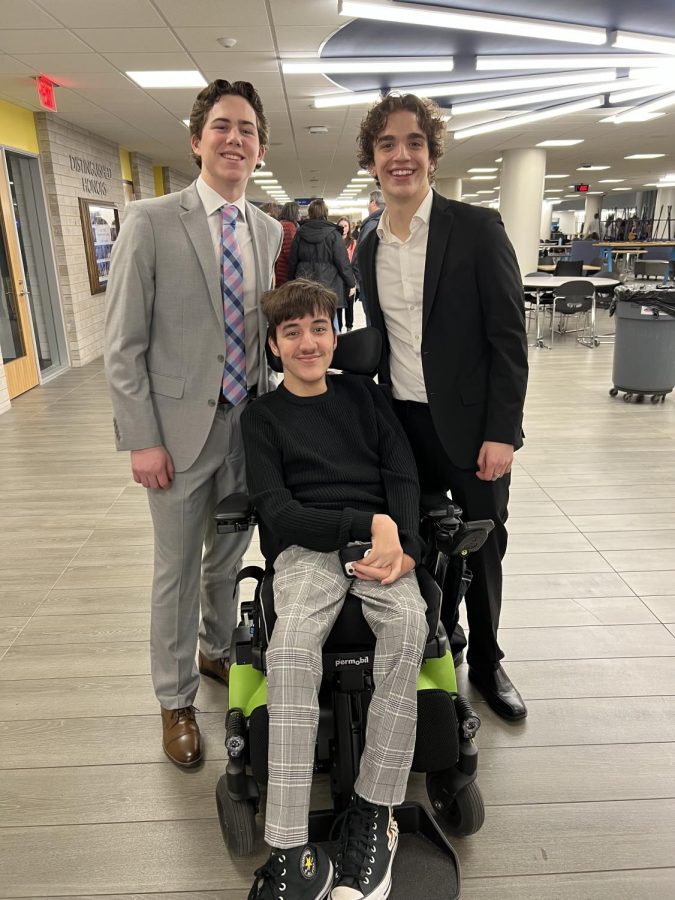Stop treating disabled people different from everyone else
When people are educated and integrated amongst disabled people, the lives of both benefit.
When I meet someone for the first time, it’s not unusual for that person to immediately notice my wheelchair and my disability, which leads to two things: uncomfortable questions and being treated like a child because of their assumptions.
The weird thing about this is that an able-bodied person rarely gets asked questions like, “How do you sleep?” or “Can you hold a pencil?”, and they’re never told “I hope you get cured.” I’ve heard all of these, from the moment I could talk, all the way up to this very day. The thing is, I’m not all that different from you or anybody else.
Sure, on a physical level I’m different, but that changes almost nothing about who I am. I have interests, like playing video games or hanging out with my friends, and outside of that the only difference is the way I get around.
The worst aspect of this all isn’t actually the inability to use stairs or go through mud, it’s really the way people tend to treat me.
It didn’t bother me when I was young since it made sense to have someone, usually an adult, talk to me like I’m a child; however, it did begin to bother me as I got older, and I became more aware of how people spoke to me and how they acted towards me.
When this occurs, it’s not uncommon for the person to either speak to me in a higher-pitched voice using language that one may use when speaking to a first grader, or they’ll speak to me slowly, assuming I need extra time to process each word.
For example, one time I was with my parents at a car dealership, and the car dealer said “Bye buddy!” to me in a high-pitched voice while slowly enunciating the words, and at the time I was around 12 years old, so it’s not like I was super young.
Occurrences like these make me feel uncomfortable, if not slightly humiliated, as then I feel like I’ll only ever be seen as less than anyone else. Furthermore, it doesn’t make me feel confident that we as a society are teaching people how to treat others, whether they’re a child or an adult.
Another incident was during the summer of 2021, I was with a group of my close friends and we ran into some of their other friends, and they were people I hadn’t met yet. Like usual, they talked to me as if I was a child. This time my friends were there and stepped up for me, letting them know that they can talk to me like they would to anyone else.
I was incredibly happy to see that my friends knew me well enough that they were able to react and respond before I could even say anything. The key to it all is education, and there’s no shame in not knowing.
Here’s my advice: treat a disabled person like you would towards an able-bodied person. If someone does need you to modify how you speak, simply do so, but don’t automatically assume.
Listen to other’s boundaries and understand that not all disabled people are the same.


